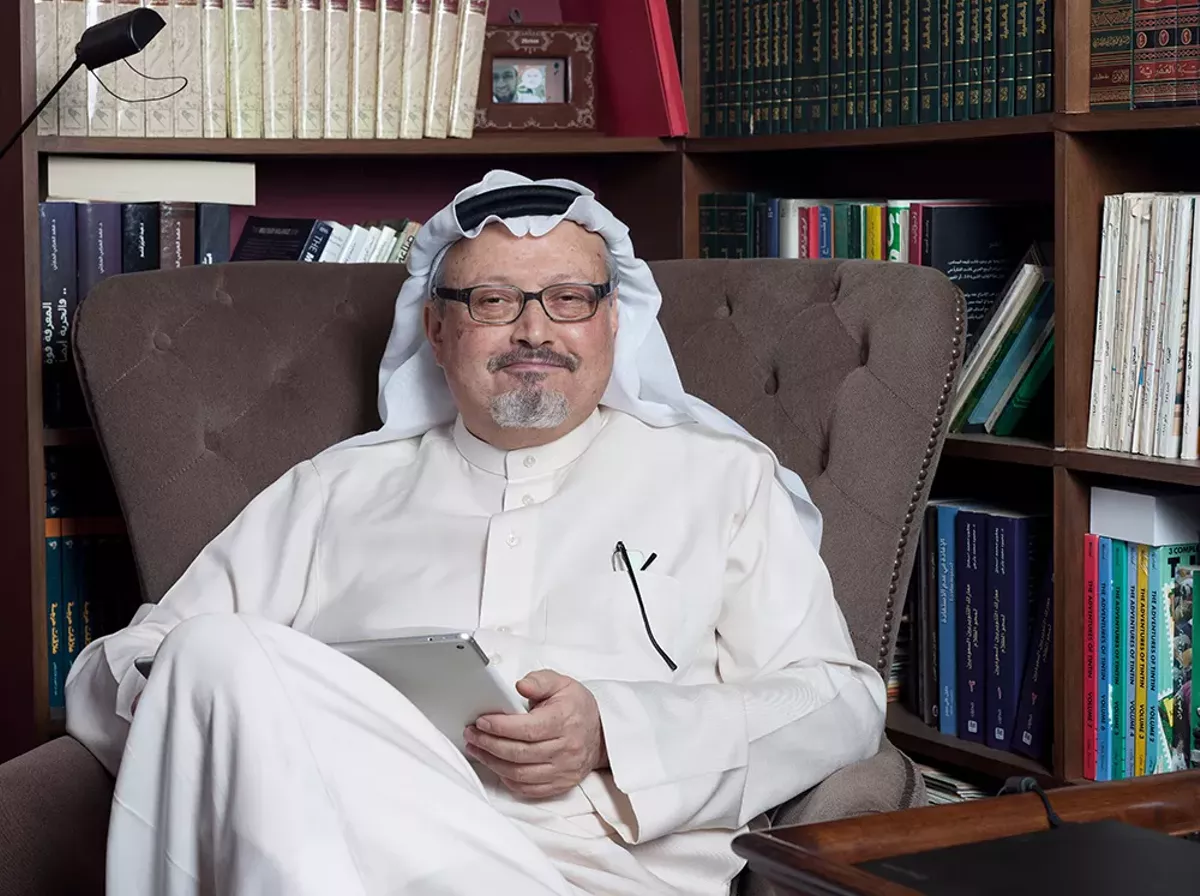

Audio By Carbonatix
[
{
"name": "GPT - Leaderboard - Inline - Content",
"component": "35519556",
"insertPoint": "5th",
"startingPoint": "3",
"requiredCountToDisplay": "3",
"maxInsertions": 100,
"adList": [
{
"adPreset": "LeaderboardInline"
}
]
}
]
"The world is a very dangerous place!"
The exclamation point got me. There were six more in that outrageous 631-word White House statement — and several other outrages in the week since, including trying to bury a damning climate change report on Black Friday and teargassing asylum-seekers at the border — but it was this one, in the statement's first line, that stuck with me.
President Donald Trump was arguing that Middle East politics necessitated turning a blind eye to Crown Prince Mohammed bin Salman's apparent murder of Washington Post journalist Jamal Khashoggi in Turkey. Saudi Arabia, he wrote, was a "great ally" in "our very important fight against Iran" (the Saudis have killed thousands of Yemeni civilians in a proxy war against Iran), and the kingdom was poised to spend $450 billion on American weapons (the actual number is $14.5 billion). Besides, Trump continued, Saudi Arabia claimed Khashoggi was an "enemy of the state" (Khashoggi was a legal American resident) and bin Salman had assured Trump that he wasn't behind the killing, so what can you do?
"It could very well be that the Crown Prince had knowledge of this tragic event — maybe he did and maybe he didn't!" Trump wrote (the CIA has high confidence that bin Salman ordered the hit). "In any case, our relationship is with the Kingdom of Saudi Arabia."
In the name of "safety and security," Trump lectured, sometimes you leave your values at the door: "As President of the United States I intend to ensure that, in a very dangerous world, America is pursuing its national interests and vigorously contesting countries that wish to do us harm. Very simply it is called America First!"
The world is a very dangerous place. Exclamation point.
That sentence and its concluding punctuation jolted me not just because it's a weird entry point to an official presidential statement — or because, were it in all caps, it would read exactly like your racist uncle's Facebook punditry — but because I'd never seen a better distillation of the essence of Donald Trump, the thing that animates his devotees and to which he owes his political success: fear.
This notion — that the world is a scary place and America needs a strongman to protect her — is the through-line connecting Trump's domestic and foreign policies, and connecting him to his base. Throughout the campaign, he called Mexican immigrants "rapists," demonized Muslims, and exaggerated crime data to suggest that black and Hispanic people posed an increasing threat in urban areas. In office, he's called neo-Nazis "very good people," African countries "shitholes," sought to make good on his promised Muslim ban, and separated thousands of children from their migrant parents and stuffed them in cages. To rally support ahead of the midterms, he conjured a "migrant caravan" crisis and dispatched thousands of troops to the border, which were quickly recalled soon after the elections and long before the caravan arrived; his campaign PAC released a misleading, race-baiting ad featuring an undocumented Mexican boasting about killing cops.
And just this weekend, Trump's Border Patrol shut down a popular port of entry to head off a wave of Central American migrants who were seeking asylum — a legal right under American and international law — then shot tear gas and rubber bullets at them, claiming that some in the group had thrown rocks across the border. Expect these images — scary brown people! chaos! — to play heavily in Trump's push for border wall funding in the lame-duck Congress.
All of these things are hallmarks of Trump's racism, of course. But they're also flashing-neon-billboard signs of authoritarianism — and the two are related. Authoritarianism, at its core, is rooted in fear. As the political scientists Marc Hetherington and Jonathan Weiler wrote in their seminal 2009 book, Authoritarianism & Polarization in American Politics, authoritarians tend to "have a greater than average need for order" that leads them toward "ethnocentric and generally prejudicial thinking" and a distrust of out-groups — minorities, feminists, LGBTQ people — that could upend social cohesion.
That's what Trump's tapped into: fear of a changing world — a more educated, diverse, progressive world. By instinct or calculation, Trump understands this, and he understands that he owes his election to it, as research shows that his base — i.e., low-educated and fundamentalist white people — tends to score high on authoritarianism. As long as Trump manipulates that fear — of Muslims, of refugees, of transgender soldiers, of a dangerous world in general — and positions himself as the only person who can impose order on chaos ("I alone can fix it," Trump famously said during the Republican National Convention in 2016), he figures his base will have his back.
What Trump also adeptly intuits is that most Americans have these fears in some measure — latent authoritarian inclinations that can be activated by perceived threats, leading us to defer to authority figures who promise to protect us. If you have to shatter a few democratic norms along the way, so be it.
Thus, we have the quintessential Trump doctrine:
The world is a very dangerous place. Exclamation point.
Stay on top of Detroit news and views. Sign up for our weekly issue newsletter delivered each Wednesday.






